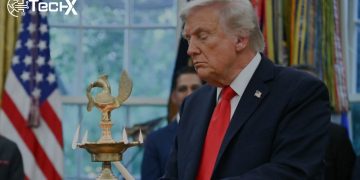A recent inquiry committee investigation has revealed significant financial irregularities in the Zakat fund, exposing widespread corruption involving government officials. Millions of rupees meant for the underprivileged have been misappropriated by district administration officials and members of the local Zakat committee. This article explores the investigation’s findings, the consequences, and the proposed actions to address the issue and bring the perpetrators to justice.
Formation of the Inquiry Committee
The inquiry committee was established in October 2024 to investigate claims of embezzlement within the Zakat fund. The committee was tasked with examining the roles of local Zakat committee members and district officials suspected of mismanaging funds. After initial findings pointed to suspicious activity, the committee deepened its investigation. The investigation was deemed crucial for uncovering the full scope of the corruption and ensuring the wrongdoers are held accountable.
A System of Corruption
The committee’s investigation exposed a large-scale misappropriation of millions of rupees meant for Zakat distribution. The officials involved created 185 unauthorized local Zakat committees, used to cover up the theft of funds. These committees, lacking official recognition, were a key component in the elaborate scheme to embezzle resources. District officials and the Zakat committee chairman were found to be directly linked to these illegal actions, further complicating the extent of the corruption.
Suspicious Transactions and Referral to FIA
The inquiry uncovered a series of suspicious financial transactions associated with the Zakat fund. These discrepancies led the committee to refer the matter to the Federal Investigation Agency (FIA), seeking a deeper investigation into the financial misconduct. The FIA has been tasked with tracking the flow of the stolen funds and identifying all those involved in the scandal. This referral marks a significant step toward ensuring that proper legal procedures are followed to uncover the truth.
Also Read: Chinese Company to Set Up 3,000 EV Charging Stations in Pakistan
Recommendations for Immediate Action
The inquiry committee has made several recommendations based on its findings. One key proposal is to take swift action against those implicated, including initiating criminal proceedings. The committee stressed the importance of transparency in the management of Zakat funds and called for the suspension of the current Zakat and Ushr Committee. An independent administrator should be appointed to oversee the operations, with a new committee to be elected in the next six months.
Proposals for Restructuring the Zakat Office
In light of the corruption uncovered, the inquiry committee recommended restructuring the district Zakat office. This restructuring aims to improve staffing, ensuring that those handling the funds are qualified and capable of managing the system effectively. The committee stressed that changes in the office’s structure would reduce the chances of future misuse of funds and ensure better oversight in the distribution of Zakat resources.
Conducting Forensic and Special Audits
To uncover the full extent of the fraud, the inquiry committee called for a forensic audit to examine fraudulent checks issued from the Zakat office. This audit will help identify the methods used to siphon off funds and determine the total amount of misappropriation. Additionally, the committee suggested a special audit to review the distribution of funds to hospitals and institutions. This audit would help clarify whether these entities were involved in any fraudulent activities.
Introducing Biometric Verification for Beneficiaries
To safeguard the Zakat system from further exploitation, the committee recommended introducing biometric verification for beneficiaries. This would ensure that only legitimate individuals benefit from the Zakat funds, preventing misuse by non-deserving recipients. The implementation of biometric records would create a more transparent and secure process, making it more difficult for fraudsters to access funds that are meant for those in need.
Legal Proceedings and Accountability
The committee’s report has been submitted to the Interior Ministry, urging the FIA to take swift action and begin legal proceedings against those found guilty of embezzling Zakat funds. The report emphasizes the need for criminal accountability to deter future corruption and uphold the integrity of the Zakat system. Legal actions are seen as essential to ensuring that those responsible for the corruption face the consequences of their actions.
Call for Systemic Reform in the Zakat Fund
The findings of the inquiry committee have highlighted serious flaws in the existing Zakat system, underlining the need for significant reform. The committee’s recommendations, including better auditing practices and organizational restructuring, are seen as essential steps toward restoring public trust in the system. These changes would help prevent future corruption and ensure that Zakat funds are distributed fairly to the poor and needy.
Conclusion
The inquiry committee’s investigation into the mismanagement of Zakat funds represents a critical step in addressing corruption within the system. The committee’s findings and recommendations provide a roadmap for the government to take corrective action and restore faith in the Zakat process. By implementing these proposed reforms, the government can ensure that resources meant to aid the most vulnerable members of society are protected from misuse and corruption.















